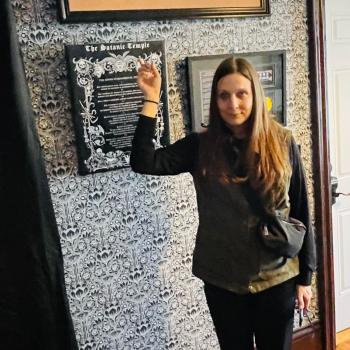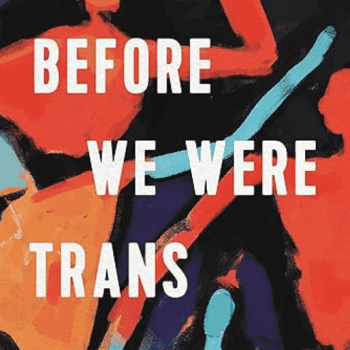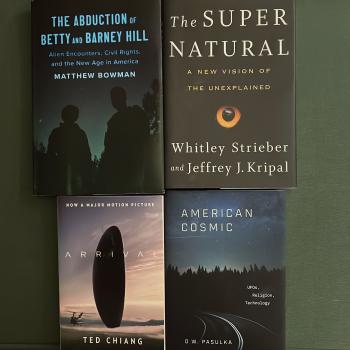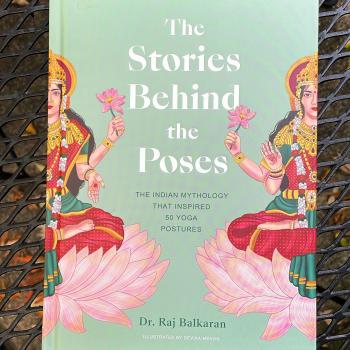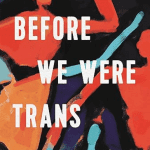We do not know the exact date when William Shakespeare was born. Our first record is of his christening on April 26, 1564 at Stratford-on-Avon in England. There is a certain appealing symmetry in the speculation that he was born three days before his christening, which would mean that the day of his birth coincided with the day of his death, exactly 52 years later on April 23, 1616.
This month we are approaching the 400th anniversary of Shakespeare’s death. And in our time, significant Shakespearean anniversaries occasion major worldwide commemorations. In contrast, in the actual year of Shakespeare’s death, his passing “went largely unremarked by all but a few of his immediate contemporaries” (NYRB 1). There was no global mourning for the “Bard of Avon,” and “No one proposed that he be interred in Westminster Abbey near Chaucer or Spenser (where his fellow playwright Francis Beaumont was buried in the same year)…. Shakespeare’s passing was an entirely local English event, and even locally it seems scarcely to have been noted” (1).
The initial lack of tribute to Shakespeare is partially due to more credit often given at the time to the actors who performed the texts than to the playwrights who authored them. There was also an important element of social status: his death did not merit the same tributes that would accrue to an actor or playwright from a higher social class. Indeed, it was not until seven years after Shakespeare’s death that his plays were collected together and published in what is known as the First Folio. And it was in the introduction to that anthology that the English literary critic Ben Johnson (1572-1637) helped begin raising awareness of the enduring significance of Shakespeare’s work in a way “that would make it appropriate for a nobleman to acknowledge a connection to a middle-class writer of popular plays” (1).
Indeed, consider this summary of Shakespeare’s career from Stephen Greenblatt’s remarkable book Will in the World: How Shakespeare Became Shakespeare:
A young man from a small provincial town—a man without independent wealth, without powerful family connections, and without a university education—moves to London in the late 1580s and, in a remarkably short time, becomes the greatest playwright not of his age alone but of all time. His works appeal to the learned and the unlettered, to urban sophisticates and provincial first-time theatergoers. He makes his audiences laugh and cry; he turns politics into poetry; he recklessly mingles vulgar clowning and philosophical subtlety. He grasps with equal penetration the lives of kings and of beggars; he seems at one moment to have studied law, at another theology, at another ancient history, while at the same time he effortlessly mimes the accent of [common folk]…. Virtually all his rival playwrights found themselves on the straight road to starvation; Shakespeare by contrast, made enough money to buy one of the best houses in his hometown to which he retired in his early fifties, a self-made man (11-12).
Despite the lack of recognition in the years immediately following his passing, Shakespeare’s plays have become widely recognized as among the English language’s greatest contributions to world literature, on the level with reading Dante’s Divine Comedy in Italian, Goethe’s Faust in German, Proust’s In Search of Lost Time in French, and Tolstoy’s War and Peace in Russian (Bloom 383). But for those of us whose first language is English, Shakespeare is one of our best access points to world historical literature.
Accordingly I’m reminded of a story from the author and activist Chris Hedges about one of his most influential college professors who:
had open disdain for New Criticism, the evisceration of texts into sterile pieces of pedantry that fled from the mysterious, sacred forces that great writers struggle to articulate. You had to love great writing before you attempted to analyze it. You had to be moved and inspired by it. You had to be captured by the human imagination. He once told me he had just reread King Lear. I recited a litany of freshly minted undergraduate criticism, talking about subplots, themes of blindness and the nature of power. He listened impassively. “Well,” he said when I had finished. “I don’t know anything about that. I only know it made me a better person and a better father.”
In that spirit, may we open our hearts and minds to the beauty and power of Shakespeare’s works.
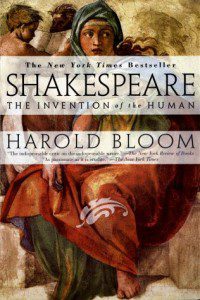 As Harold Bloom has shown in his Shakespeare: The Invention of the Human, the bard’s plays were written over a period of approximately 25 years from around 1589 to 1613 (xiii-xv). And arguably his greatest genius is the diversity and depth of his characters (1). Through Falstaff, Hamlet, Rosalind, Iago, Lear, Macbeth, Cleopatra and so many others, Shakespeare is often working at the archetypal level of the collective unconscious (xviii). His genius can perhaps only be understood in the way we stand in awe of a Michelangelo or a Mozart, whose idiosyncratic gifts channeled a stream of paradigm-shifting creativity.
As Harold Bloom has shown in his Shakespeare: The Invention of the Human, the bard’s plays were written over a period of approximately 25 years from around 1589 to 1613 (xiii-xv). And arguably his greatest genius is the diversity and depth of his characters (1). Through Falstaff, Hamlet, Rosalind, Iago, Lear, Macbeth, Cleopatra and so many others, Shakespeare is often working at the archetypal level of the collective unconscious (xviii). His genius can perhaps only be understood in the way we stand in awe of a Michelangelo or a Mozart, whose idiosyncratic gifts channeled a stream of paradigm-shifting creativity.
Shakespeare wrote at an “extraordinary pace,” producing “twenty-seven plays in the decade from 1592 to 1602….” But what is most stunning is not only that level of output, but also the quality. To consider a period of a little more than a year in 1606-7, “The mystery of Shakespeare…is not the composition of three tragedies in sixty weeks but that the three comprised Lear, Macbeth, and Antony and Cleopatra” (728).
Along these lines, the term “Bibliolatry” (idolatry of the Bible) has been coined for those whose obsession with the biblical text obscures their attention to the people, communities, and experiences which inspired those scriptures in the first place. Worshipping the Bible is an exercise in missing the point. In contrast, there are those who would argue that, “Bardoltry, the worship of Shakespeare, ought to be even more a secular religion than it already is” (xvii).
Among contemporary adherents to the religion of Shakespeare, perhaps the chief disciple is the Yale literary critic Harold Bloom, who writes:
A substantial number of Americans who believe they worship God actually worship three major literary characters: the Yahweh of the J Writer (earliest author of Genesis, Exodus, Numbers), the Jesus of the Gospel of Mark, and Allah of the Koran. I do not suggest that we substitute the worship of Hamlet, but Hamlet is the only secular rival to his greatest precursors in personality. Like them, he seems not to be just a literary or dramatic character. His total effect upon the world’s culture is incalculable. After Jesus, Hamlet is the most cited figure in Western consciousness; no one prays to him, but no one evades him for long either. (xix)
Also, like the classics of the world’s religions, Shakespeare is a classic in the sense that there neither was nor ever could be one definitive reading for all time. Rather, his works continue to produce meaningful re-readings and moving re-interpretations both within lifetimes and from generation to generation. As T.S. Eliot said, “all we can hope for is to be wrong about Shakespeare in a new way” (2).
As a contemporary example of such an attempt, in 2014, Emily St. John Mandel published her fourth novel, Station Eleven, which was on a number of “best of the year” lists. In the novel, a flu pandemic has killed most of the world’s population. But in contrast to post-apocalyptic dystopias such as The Walking Dead, Station Eleven spends almost no time on the impact of the disease or the immediate aftermath of rebuilding some semblance of civilization. Instead, it skips ahead two decades to focus on a group of artists called The Traveling Symphony, who visit the small groups stationed around the land formerly known as The United States.
The Traveling Symphony discovers over the years that audiences in these small far-flung villages were less interested in seeing performances of modern plays and instead preferred Shakespeare. In the words of one of the characters: “People want what was best about the world” (37). These itinerant artists bring live music and live theater to a world that has been without electricity for twenty years. The Traveling Symphony:
This collection of petty jealousies, neuroses, undiagnosed PTSD cases, and simmering resentments lived together, traveled together, rehearsed together, performed together 365 days of the year, permanent company, permanent tour. But what made it bearable were the friendships, of course, the camaraderie and the music and the Shakespeare, the moments of transcendent beauty and joy when it didn’t matter who’d used the last of the rosin on their bow or who anyone had slept with, although someone…had written “Sartre: Hell is other people” in pen inside one of the caravans, and someone else had scripted out “other people” and substituted “flutes.” (47)
The Traveling Symphony’s motto, written on the lead caravan, reads, “Survival is insufficient” (58). May Shakespeare and the countless other artists throughout history and today inspire us to build a world of art and beauty—because mere survival in this world is insufficient. That is the spirituality of Shakespeare.
The Rev. Dr. Carl Gregg is a trained spiritual director, a D.Min. graduate of San Francisco Theological Seminary, and the minister of the Unitarian Universalist Congregation of Frederick, Maryland. Follow him on Facebook (facebook.com/carlgregg) and Twitter (@carlgregg).
Learn more about Unitarian Universalism: http://www.uua.org/beliefs/principles






